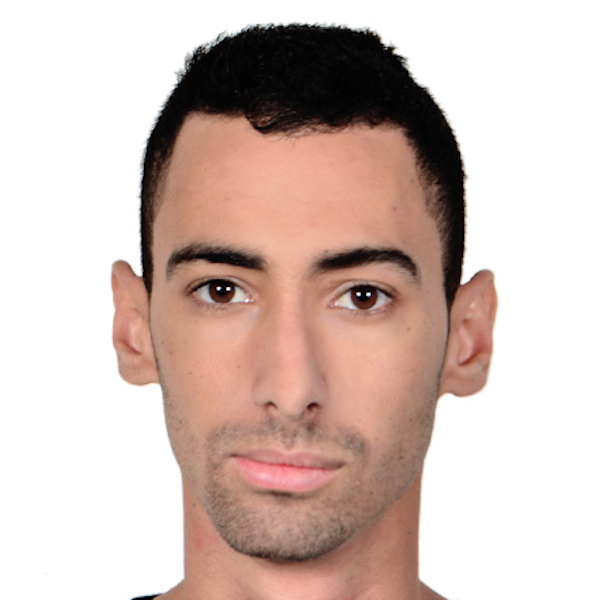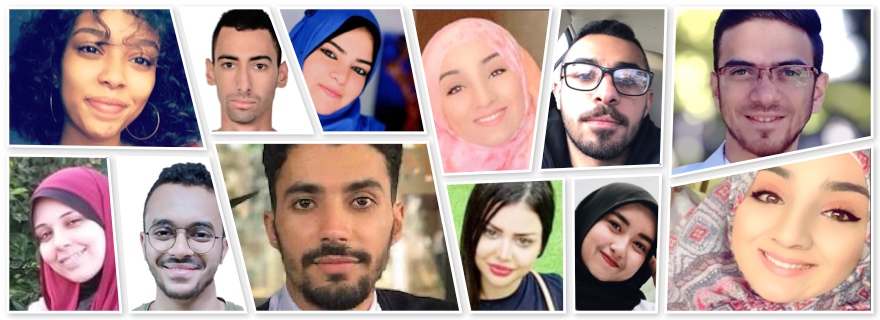This is part ten in the series “Arabs Say…” featuring Arabic speakers from around the Arab world who gives their views on their language and how it is used today. Of course, we should keep in mind that these are personal views and do not represent the views of everyone in their countries. Still, we can learn a lot about the overall linguistic situation and some commonalities and regional differences.
What kind of things make other Arabic dialects hard for you to understand?
For me personally, maybe the pronunciation. I remember meeting an Algerian this summer and as we were talking, I'd ask him, "Can you please repeat that?" just so I could pinpoint exactly what they said, so I'd be able to reply. So, I'd say pronunciation over everything else. If it's clear, there's no problem.

For me personally, maybe the pronunciation. I remember meeting an Algerian this summer and as we were talking, I'd ask him, "Can you please repeat that?" just so I could pinpoint exactly what they said, so I'd be able to reply. So, I'd say pronunciation over everything else. If it's clear, there's no problem.

It is mostly about the vocabulary and pronunciation because these dialects have some unique vocabulary that differ from my dialect, and also the pronunciation is very hard to understand. For example, Iraqis say شو بتقول; in my dialect, we say شنو بتحكي. It is different from my pronunciation. Also, there is a semantic difference. For example, in the Saudi Arabian dialect, they say to compliment someone الله يعطيك العافية, which means, literarily, 'may god give fire.' In my dialect, we use this phrase to curse someone, but in Saudi dialect, they mean by using this phrase, 'may God give you good health.'

It is mostly about the vocabulary and pronunciation because these dialects have some unique vocabulary that differ from my dialect, and also the pronunciation is very hard to understand. For example, Iraqis say شو بتقول; in my dialect, we say شنو بتحكي. It is different from my pronunciation. Also, there is a semantic difference. For example, in the Saudi Arabian dialect, they say to compliment someone الله يعطيك العافية, which means, literarily, 'may god give fire.' In my dialect, we use this phrase to curse someone, but in Saudi dialect, they mean by using this phrase, 'may God give you good health.'

What makes a dialect difficult to understand is the way people pronounce their own dialects and also how they grammatically phrase things in their own dialect. Sometimes the vocabulary can also add difficulty, as there might be some words familiar to their own dialect and culture but are not familiar to mine.

What makes a dialect difficult to understand is the way people pronounce their own dialects and also how they grammatically phrase things in their own dialect. Sometimes the vocabulary can also add difficulty, as there might be some words familiar to their own dialect and culture but are not familiar to mine.

Pronunciation and vocabulary. The Moroccans, Algerians, and Tunisians use lots of French words. They use words that are completely different from Modern Standard Arabic, which make us unable to understand them at all. For example, Moroccans say مطيشة, which would be طماطم in Egyptian Arabic and MSA. (It is 'tomato' in English.) They say خيزو to refer to 'carrot' or جزر in Egyptian Arabic and MSA. The words are unintelligible and very different even from MSA. Of course, we could never understand that. One day, I was watching a Moroccan TV channel for food recipes because I like new recipes. I couldn't understand anything actually.

Pronunciation and vocabulary. The Moroccans, Algerians, and Tunisians use lots of French words. They use words that are completely different from Modern Standard Arabic, which make us unable to understand them at all. For example, Moroccans say مطيشة, which would be طماطم in Egyptian Arabic and MSA. (It is 'tomato' in English.) They say خيزو to refer to 'carrot' or جزر in Egyptian Arabic and MSA. The words are unintelligible and very different even from MSA. Of course, we could never understand that. One day, I was watching a Moroccan TV channel for food recipes because I like new recipes. I couldn't understand anything actually.

The two things that most make it difficult to understand are pronunciation and "new" vocabulary. That's the main reason that makes Maghrebi Arabic the most difficult one to understand. The pronunciation for the words tends to be French. Even the Arabic words they are using, they are pronouncing them in a French way. The second thing is the "new" vocabulary they are using. They may invent words that have nothing to do with Arabic and start to use them, but unfortunately, other Arabic speakers will not understand them. At least, Egyptian dialect words, or some of them, are based on MSA, but that invented vocabulary not from MSA is difficult to understand for Arabic people who are not from the same region.

The two things that most make it difficult to understand are pronunciation and "new" vocabulary. That's the main reason that makes Maghrebi Arabic the most difficult one to understand. The pronunciation for the words tends to be French. Even the Arabic words they are using, they are pronouncing them in a French way. The second thing is the "new" vocabulary they are using. They may invent words that have nothing to do with Arabic and start to use them, but unfortunately, other Arabic speakers will not understand them. At least, Egyptian dialect words, or some of them, are based on MSA, but that invented vocabulary not from MSA is difficult to understand for Arabic people who are not from the same region.

Having some difficulties in understanding other dialects is a normal problem we face. I think the most common problem is pronunciation and annotation of some dialects such as the Maghrabi Arabic. They are really fast and have completely different pronunciation. The other hard problem is the differences in vocabulary and names of items. I still remember when I traveled to Egypt, I realized that most of the fruits and vegetables have different names than we have in Palestine.

Having some difficulties in understanding other dialects is a normal problem we face. I think the most common problem is pronunciation and annotation of some dialects such as the Maghrabi Arabic. They are really fast and have completely different pronunciation. The other hard problem is the differences in vocabulary and names of items. I still remember when I traveled to Egypt, I realized that most of the fruits and vegetables have different names than we have in Palestine.

Dialects are like languages. You can’t understand or learn a language if you don’t listen to people talking or practicing the language by yourself. For example, in my dialect, ألم means 'pain' and also 'pen,' but in Egyptian Arabic, it means a 'slap.' When I heard it the first time, I was so shocked. I heard a girl saying in her Eygptian dialect, "هضربك بالألم" which actually means 'I'm going to slap you.' In my dialect, I understood this sentence as 'I'm going to hit you with a pen!'

Dialects are like languages. You can’t understand or learn a language if you don’t listen to people talking or practicing the language by yourself. For example, in my dialect, ألم means 'pain' and also 'pen,' but in Egyptian Arabic, it means a 'slap.' When I heard it the first time, I was so shocked. I heard a girl saying in her Eygptian dialect, "هضربك بالألم" which actually means 'I'm going to slap you.' In my dialect, I understood this sentence as 'I'm going to hit you with a pen!'

Personally, the kind of things that make other dialects hard to understand is the vocabulary. I find that some words (especially when it comes to food) so different that sometimes it gets confusing. I realized that the difficulty arises mostly in supermarket or restaurant settings (food vocabulary). For example, once, I called a minimarket in Saudi Arabia and asked to have arnabeet (cauliflower), banadoora (tomato), flayfleh (pepper), laban (yogurt) and laymoon (orange) delivered to me. The delivery guy answered that they don't have arnabeet and banadoora but the rest he does. When the delivery guy arrived, he handed me a bag containing chili, milk, and lemons... while I was expecting pepper, yogurt, and oranges. It turns out that in Saudi Arabia, flayfleh is chili but felfel is pepper. Laban is milk, but laban zabadi is yogurt, laymoon is lemon but bortookal is orange. As for arnabeet and banadoora? It seems that they had that, only he didn't understand what I meant so he said they don't. In Saudi Arabia banadoora (tomato) is tamatem and arnabeet (cauliflower) is zahra.

Personally, the kind of things that make other dialects hard to understand is the vocabulary. I find that some words (especially when it comes to food) so different that sometimes it gets confusing. I realized that the difficulty arises mostly in supermarket or restaurant settings (food vocabulary). For example, once, I called a minimarket in Saudi Arabia and asked to have arnabeet (cauliflower), banadoora (tomato), flayfleh (pepper), laban (yogurt) and laymoon (orange) delivered to me. The delivery guy answered that they don't have arnabeet and banadoora but the rest he does. When the delivery guy arrived, he handed me a bag containing chili, milk, and lemons... while I was expecting pepper, yogurt, and oranges. It turns out that in Saudi Arabia, flayfleh is chili but felfel is pepper. Laban is milk, but laban zabadi is yogurt, laymoon is lemon but bortookal is orange. As for arnabeet and banadoora? It seems that they had that, only he didn't understand what I meant so he said they don't. In Saudi Arabia banadoora (tomato) is tamatem and arnabeet (cauliflower) is zahra.

I think the main factor which can make a dialect difficult is pronunciation and vocabulary. For example, the different regions of Syria use a pronunciation that is understood to Syrians, but they may use different special words and terms which can be difficult to understand. And if I mention difficult pronunciation, I should mention Maghrebi Arabic (Moroccan/Algerian/Tunisian/Libyan). They use a difficult, fast, and different dialect in addition to using strange words and expressions.

I think the main factor which can make a dialect difficult is pronunciation and vocabulary. For example, the different regions of Syria use a pronunciation that is understood to Syrians, but they may use different special words and terms which can be difficult to understand. And if I mention difficult pronunciation, I should mention Maghrebi Arabic (Moroccan/Algerian/Tunisian/Libyan). They use a difficult, fast, and different dialect in addition to using strange words and expressions.

Both pronunciation and vocabulary make their dialects hard to understand. Like, if I try to keep up with the Tunisian dialect, it would literally take all my attention only to get the pronunciation of the words. The Maghrebi Arabic countries' dialects have a lot of vocabulary that I can never know its meaning.

Both pronunciation and vocabulary make their dialects hard to understand. Like, if I try to keep up with the Tunisian dialect, it would literally take all my attention only to get the pronunciation of the words. The Maghrebi Arabic countries' dialects have a lot of vocabulary that I can never know its meaning.

The hardiest thing is the vocabulary they use. It’s difficult for me because I don’t know what they mean by a word, or the word might have a different meaning in my dialect. For example, some people say زوق, which means 'push,' but in most dialects when they hear it, they will think it means 'feces.'

The hardiest thing is the vocabulary they use. It’s difficult for me because I don’t know what they mean by a word, or the word might have a different meaning in my dialect. For example, some people say زوق, which means 'push,' but in most dialects when they hear it, they will think it means 'feces.'

I don't think it's grammar. Pronunciation and vocabulary are what's going to be the hardest thing you face when you're not familiar with the other person's dialect. For example, once I was talking to my Moroccan aunt about how she could understand what we were saying and even talking in an understandable Arabic for us, and she said that her Arabic dialect is not very different than ours. They just talk faster and have some different sounds for the letters. Also, they study French, which is not a very common language here in Oman. Unlike English, they have some French vocabulary in their dialect.

I don't think it's grammar. Pronunciation and vocabulary are what's going to be the hardest thing you face when you're not familiar with the other person's dialect. For example, once I was talking to my Moroccan aunt about how she could understand what we were saying and even talking in an understandable Arabic for us, and she said that her Arabic dialect is not very different than ours. They just talk faster and have some different sounds for the letters. Also, they study French, which is not a very common language here in Oman. Unlike English, they have some French vocabulary in their dialect.


